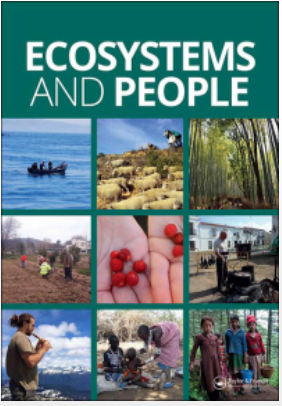运用杠杆点视角比较社会生态系统——以乡村景观为例
IF 3.7
Q1 Agricultural and Biological Sciences
引用次数: 8
摘要
摘要杠杆点视角识别不同层次的系统深度,从相对较浅层次的参数和反馈到更深层次的系统设计和意图。分析给定的社会生态系统在这四个系统深度层面上的特征,可以提供有用的诊断,更好地理解可持续性问题,并可以补充其他类型的因果系统建模。此外,多个系统的结构化比较可以突出不同系统中的可持续性挑战是否具有相似的起源(例如,相似的反馈或相似的设计)。我们使用杠杆点视角系统地比较了三个深入的社会生态案例研究的结果,这些案例研究调查了澳大利亚东南部、罗马尼亚中部和埃塞俄比亚西南部的农村景观。对60多份实证出版物中记录的关键发现进行归纳编码,以生成三个案例研究中关键发现的综合说明。尽管存在重大的社会经济和生态差异,但许多综合陈述适用于所有三个案例研究。主要的可持续性问题发生在设计和意图层面。例如,在意图层面,所有三个农村景观都是由反映生产力绿色革命话语的目标和范式驱动的。因此,我们的论文强调了世界各地农村可持续性面临的潜在挑战,这些挑战似乎同样适用于截然不同的社会经济背景。可持续性干预措施应注意系统特征的深刻相似性。我们得出的结论是,杠杆点视角可以用来比较世界各地许多其他类型的社会生态系统。本文章由计算机程序翻译,如有差异,请以英文原文为准。
Using a leverage points perspective to compare social-ecological systems: a case study on rural landscapes
ABSTRACT A leverage points perspective recognises different levels of systemic depth, ranging from the relatively shallow levels of parameters and feedbacks to the deeper levels of system design and intent. Analysing a given social-ecological system for its characteristics across these four levels of systemic depth provides a useful diagnostic to better understand sustainability problems, and can complement other types of cause-and-effect systems modelling. Moreover, the structured comparison of multiple systems can highlight whether sustainability challenges in different systems have a similar origin (e.g. similar feedbacks or similar design). We used a leverage points perspective to systematically compare findings from three in-depth social-ecological case studies, which investigated rural landscapes in southeastern Australia, central Romania, and southwestern Ethiopia. Inductive coding of key findings documented in over 60 empirical publications was used to generate synthesis statements of key findings in the three case studies. Despite major socioeconomic and ecological differences, many synthesis statements applied to all three case studies. Major sustainability problems occurred at the design and intent levels. For example, at the intent level, all three rural landscapes were driven by goals and paradigms that mirrored a productivist green revolution discourse. Our paper thus highlights that there are underlying challenges for rural sustainability across the world, which appear to apply similarly across strongly contrasting socioeconomic contexts. Sustainability interventions should be mindful of such deep similarities in system characteristics. We conclude that a leverage points perspective could be used to compare many other types of social-ecological systems around the world.
求助全文
通过发布文献求助,成功后即可免费获取论文全文。
去求助
来源期刊

Ecosystems and People
Agricultural and Biological Sciences-Ecology, Evolution, Behavior and Systematics
CiteScore
7.80
自引率
11.30%
发文量
40
审稿时长
42 weeks
期刊介绍:
Ecosystems and People is an interdisciplinary journal that addresses how biodiversity and ecosystems underpin human quality of life, and how societal activities and preferences drive changes in ecosystems. Research published in Ecosystems and People addresses human-nature relationships and social-ecological systems in a broad sense. This embraces research on biodiversity, ecosystem services, their contributions to quality of life, implications for equity and justice, and the diverse and rich ways in which people relate to nature.
 求助内容:
求助内容: 应助结果提醒方式:
应助结果提醒方式:


